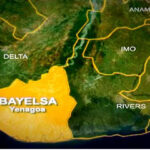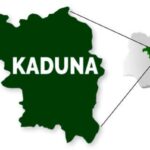By Vijay Prashad
Anxiety about the expansion of the North Atlantic Treaty Organisation (Nato) toward the Russian border is one of the causes of the current war in Ukraine. But this is not the only attempt at expansion by Nato, a treaty organisation created in 1949 by the United States to project its military and political power over Europe.
In 2001, Nato conducted an “out of area” military operation in Afghanistan, which lasted 20 years, and in 2011, Nato — at the urging of France — bombed Libya and overthrew its government. Nato military operations in Afghanistan and Libya were the prelude to discussions of a “Global Nato,” a project to use the Nato military alliance beyond its own charter obligations from the South China Sea to the Caribbean Sea.
Nato’s war in Libya was its first major military operation in Africa, but it was not the first European military footprint on the continent. After centuries of European colonial wars in Africa, new states emerged in the aftermath of World War II to assert their sovereignty. Many of these states — from Ghana to Tanzania — refused to allow the European military forces to reenter the continent, which is why these European powers had to resort to assassinations and military coups to anoint pro-Western governments in the region.
This allowed for the creation of Western military bases in Africa and gave Western firms freedom to exploit the continent’s natural resources.
Early Nato operations stayed at the edge of Africa, with the Mediterranean Sea being the major frontline. Nato set up the Allied Forces Southern Europe in Naples in 1951 and then the Allied Forces Mediterranean in Malta in 1952. Western governments established these military formations to garrison the Mediterranean Sea against the Soviet navy and to create platforms from where they could militarily intervene in the African continent.
After the Six-Day War in 1967, Nato’s Defence Planning Committee, which was dissolved in 2010, created the Naval On-Call Force Mediterranean to put pressure on pro-Soviet states — such as Egypt — and to defend the monarchies of northern Africa.
Conversations at Nato headquarters about “out of area” operations took place with increasing frequency after Nato joined the US war on Afghanistan. A senior official at Nato told me in 2003 that the United States had “developed an appetite to use Nato” in its attempt to project power against possible adversaries. Two years later, in 2005, in Addis Ababa, Ethiopia, Nato began to cooperate closely with the African Union. The lack of a viable military force meant that the AU often turned to the West for assistance and asked Nato to help with logistics and airlift support for its peacekeeping mission in Sudan.
Alongside Nato, the US operated its military capacity through the United States European Command (Eucom), which oversaw the country’s operations in Africa from 1952 to 2007. Thereafter, General James Jones, head of Eucom from 2003 to 2006, formed the US Africa Command (Africom) in 2008, which was headquartered in Stuttgart, Germany, because none of the 54 African nations were willing to give it a home. Nato began to operate on the African continent through Africom.
Nato’s war on Libya changed the dynamics of the relationship between the African countries and the West. The AU was wary of Western military intervention in the region. On 10 March, 2011, the AU’s Peace and Security Council set up the High-Level ad hoc Committee on Libya. The members of this committee included then-AU chairperson Dr Jean Ping and the heads of state of five African nations — Mauritania’s Mohamed Ould Abdel Aziz, Republic of Congo’s President Denis Sassou Nguesso, Mali’s Amadou Toumani Touré, South Africa’s Jacob Zuma and Uganda’s President Yoweri Museveni — who were supposed to fly into Tripoli, Libya, and negotiate between the two sides of the Libyan civil war.
The UN Security Council, however, prevented this mission from entering the country.
At a meeting between the High-Level ad hoc Committee on Libya and the UN in June 2011, Uganda’s permanent representative to the UN during that time, Dr Ruhakana Rugunda, said: “It is unwise for certain players to be intoxicated with technological superiority and begin to think they alone can alter the course of human history toward freedom for the whole of mankind. Certainly, no constellation of states should think that they can recreate hegemony over Africa.”
But this is precisely what the Nato states began to imagine. Chaos in Libya set in motion a series of catastrophic conflicts in Mali, southern Algeria and parts of Niger. The French military intervention in Mali in 2013 was followed by the creation of the G5 Sahel, a political platform of the five Sahel states — Burkina Faso, Chad, Mali, Mauritania and Niger — and a military alliance between them.
In May 2014, Nato opened a liaison office at the AU headquarters in Addis Ababa. At Nato’s Wales Summit in September 2014, the alliance partners considered the problems in the Sahel that entered the alliance’s Readiness Action Plan, which served as “[the] driver of Nato’s military adaptation to the changed and evolving security environment.”
Two years later, at Nato’s Warsaw Summit in 2016, Nato leaders decided to increase their cooperation with the AU. They “[welcomed] the robust military commitment of allies in the Sahel-Sahara region.” To deepen this commitment, Nato set up an African Standby Force and began the process of training officers in African military forces.
The ignominy of Western — and Nato’s — follies, including arms deals with Morocco to deliver Western Sahara to the kingdom and diplomatic backing for Israel as it continues its apartheid treatment of Palestinians, bring into sharp contrast Western outrage at the events taking place in Ukraine. Evidence of this hypocrisy serves as a warning while reading the benevolent language used by the West when it comes to Nato’s expansion into Africa.
Source: Mail&Guardian

 Join Daily Trust WhatsApp Community For Quick Access To News and Happenings Around You.
Join Daily Trust WhatsApp Community For Quick Access To News and Happenings Around You.


